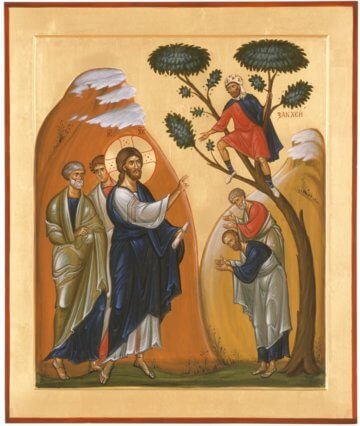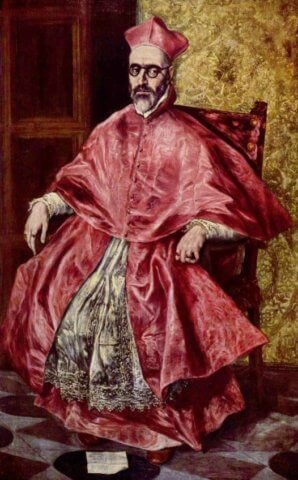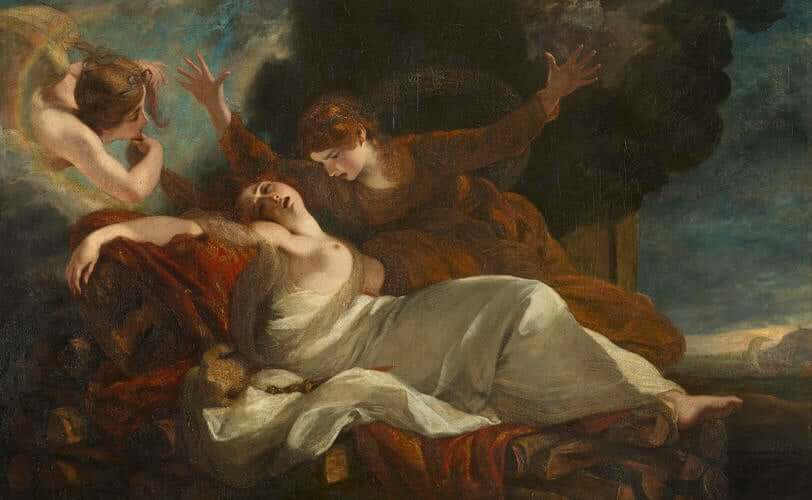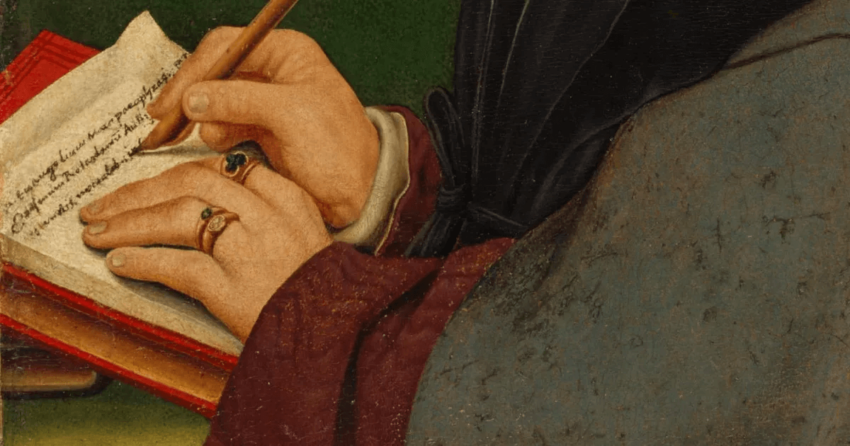Dostoevsky: Freedom, Evil, and the Existence of God

Several students, reading Ivan Karamazov’s account of the suffering of innocents, particularly little children, in the The Brothers Karamazov, take God to task for allowing this misery and declare his non-existence in the name of mercy and compassion. This empathy for the poor and downtrodden, the weak and the vulnerable, is perfectly Christian. Jesus befriended the anathematized, the tax collectors, who collected taxes for the Roman overlords, not for the benefit of local affairs, and the prostitutes, not the powerful and well-regarded. Jesus is God made man, taking on all the sufferings and misery of the human condition, dying crucified on the cross. A spiritual Messiah, rather than the conquering Messiah the Jews imagined who would rule the world.

The character Ivan, drawing on real-life accounts of horrors printed in the newspapers, read so assiduously by Dostoevsky, refers to a little girl who wet the bed and is locked in an outhouse in freezing weather with excrement smeared in her mouth, another beaten to within an inch of her life by her father with her mother’s approval, a baby abandoned and left to be raised by shepherds who treat him in the most despicable and uncaring manner possible and who has a tragic fate, babies bayoneted by Turkish soldiers in front of their mothers and whose brains are blasted out with guns in their mouths after playing with and cooing at them.
The dignity of man and the source of his intrinsic worth is to be found in the fact that he is made in the image of God. The way in which man is an image of God is in his freedom – an unknowable infinity lying within his breast – the same infinity associated with God. This freedom is a burden that most people would rather do without. The Grand Inquisitor remonstrates with Jesus, saying that only the strong can bear the weight of freedom and thus that freedom is a most terrible thing that makes people accountable for their actions and requires too much of them. People just want bread, peaceable relations with their neighbors, forgiveness of sins, and the promise of a happy existence in this life and the next. The Grand Inquisitor offers all of that. He and his cronies will take control of the bread supplies, not baking it themselves, but distributing it equitably because he knows we are incapable of doing this ourselves. He will take our confessions and absolve us of sin to relieve our groaning consciences, and will lyingly promise an afterlife, when, of course, the Grand Inquisitor represents a complete rejection of Christianity and the dignity of man. He will enslave the population and lie to them and they will be grateful and praise him as their savior. Freedom is a burden. It is aristocratic, not democratic.
Freedom of thought, freedom of conscience, makes of life an unending puzzle. “Can’t we just pray and be kind to each other?” someone asked. The unspoken end of the sentence was “Must I have to think for myself, choose my values, and figure out how to live my life on top of everything?” Jesus asked mostly questions in the form of parables, forcing people to think, if they are to live as Christ expected them to. But, many putative Christians would prefer a cheat-sheet with the answers filled in. In that way, if they are wrong they can blame someone else and say “I was just following the standard interpretation that my church provided me, it’s not my fault!” God forbid that we accept responsibility for our own mistakes. Once in a Bible study class, an older lady joined the group, and listened to us try to figure out the meanings of some New Testament Gospel or other. After a few minutes she said, “I don’t want to hear what you [know nothing rabble] have to say on the topic. Go find the priest so he can tell us what it really means.” If such a thing were possible, it would certainly be convenient. Political correctness serves the same purpose of eradicating thought and freedom.

Humanism is the dream of man made self-sufficient. No God, no transcendence, no divinity, Man could finally take his rightful place as the pinnacle of creation with no imaginary God making him feel bad about himself by comparison. This would be a fate so terrible it is hard to contemplate. Man exists in the metaxy, the inbetween – between God and beasts. Without God we oscillate between thinking of ourselves as naked apes, or machines, and God-like beings awaiting the Singularity, or creating conscious computers. Humanism is precisely how man loses his humanity. God is more human than man, Berdyaev writes. It is man who is inhuman. But, we have God within us, and God has man within Him. With God, we have the hope of becoming humane, without him, we are beasts ruled by the deterministic forces of material reality.
Without God, we are the accidental product of mindless evolutionary forces following natural laws. The alternative to God is materialism. In materialism, humans are collections of atoms with no intrinsic worth. We are biological mechanisms driven by forces programmed into us by nature. There is the sex drive, the desire to survive, and a belief in reciprocity bred into us by instinct and genes. Individual survival is generally dependent on integration in a group – lone wolf humans are destined to starve, or to get eaten by animals, or attacked by groups of people who can easily overwhelm them by force. Morality would have to be a convention only, with no basis in reality, and the human would be a deterministic machine obeying the laws of physics.
Objective reality, the realm of objects, is in fact ruled by deterministic forces. If we were our bodies only, and consciousness simply an illusion of brain function, then freedom would be impossible, and all human beings would be forever entirely innocent of wrongdoing, or good. The poor horse stuck in the mud having its delicate eyes beaten by an infuriated peasant? That peasant is not responsible for his actions. He is, after all, simply a lumbering robot driven by his selfish genes. His endocrine system secretes a nasty hormone, and societal forces having to do with his upbringing and social models collude, and, hey presto, outcomes the lash. He is not to blame because he is not free. Likewise, the parents who beat the little screaming girl, and the monsters smearing excrement in the other little girl’s mouth, and the general who sets his dogs on a little boy who gets ripped apart by them, they are all innocent of any wrongdoing because they are simply doing what the laws of cause and effect have determined.
If, on the other hand, someone were to want to describe these things as evil, then this means God exists. God is spiritual and the spiritual exists in subjectivity; in the interior of the human breast. God is not a thing, a being, an object. He illuminates from within. He is not a Ruler, a Lawmaker, a Punisher. Those are categories imported from human social life – rules and laws being necessary for social existence. There is no Freedom in a material universe; there is only physical causation, social forces, etc.
If Freedom exists, it exists as an acausal Mystery; the Ungrund, from which God the Father emerges. Only if Freedom exists, is love, creativity, imagination, intuition, knowledge, reason, morality, and beauty possible. A materialist philosopher comments that the problem with free will is – what does “free” mean? And what does “will” mean? Neither one can be adequately defined. He is correct. Freedom is a mystery that is not susceptible to conceptualization or explanation. Creativity involves something emerging out of nothing. Where does the inspiration for artistic or musical creation come from? Where do scientists get their hypotheses to test? Unknown. If it were known, and could be mechanized such that an algorithm could be produced guaranteeing the success of all creative endeavors, then creativity would no longer exist. There is literally nothing creative about following an algorithm.

In Stalker, the film by Andrei Tarkovsky, the “Professor” wants to blow up the Room in the Zone which represents creativity, imagination, intuition, and the generally unknown. He wants to do this because out of the human imagination both good and evil emerge. To grant this ability to some is harmless, but we could eliminate great evil without imagination. He eventually abandons this ambition because it would mean the end of hope for man because it would kill an essential part of him.
If evil exists for real, then morality exists for real. Berdyaev comments that the existence of evil proves the existence of God just as surely as the existence of goodness does. Without God (Father, Son, and Holy Ghost), then morality does not exist. So, in judging the mistreatment of children as evil, someone is evoking God. He is saying these monsters are free and responsible for their actions. Freedom can find no purchase in physical reality. Freedom intrudes itself in the realm of Earth, from its heavenly, otherworldly origins. It is a spiritual reality that is connected with the human soul, and the divine, eternal human soul, introduces agency into an otherwise anonymous world where everything would otherwise be a mere “sequence of events.” Agents are centers of decision-making. If determinism is true, then there are no agents, we make no decisions at all – that is a mere illusion.
In rejecting a world and a God where children can be mistreated, the rejecting person is in fact accepting the reality of love and morality which can only exist if the nonphysical and spiritual is real. He is using the very criteria made possible by the thing he is rejecting. Evil is made possible by Freedom. The only alternative to having evil be possible is slavery. Either a slavery and coercion imposed by God (an oxymoron), or the slavery and coercion of a deterministic universe. If we want love to exist, then we have to accept Freedom. Love at gunpoint is meaningless and an illusion were it somehow to be possible.
Out of love for children the God-hater wants to abolish love. An entirely loveless universe would be much worse than a universe where evil sometimes triumphs over good. And the indignation at the activities of the Turkish soldiers, the demented parents, the general, would turn out to be misguided. This is to use God to criticize God. But it is not God who is doing any of this. It is us humans. Outrage at the suffering of innocents is good and divine. In some ways it is better to be this outraged person, rather than simply the philosopher who says “Oh, it’s all right. It is simply the necessary outcome of the metaphysical principle of Freedom.” It is not all right. It is laudable to be angry and to defend the weak, but just be aware that the very love and compassion being appealed to can only exist if there is a spiritual reality.
If God enslaved the whole world, in the manner of the Grand Inquisitor, and made sure that no one ever committed evil, then He himself would be evil. The evil of an entirely unfree world – a world where every single human being was reduced to a state of bondage – would far outweigh what actually exists. What actually exists is a mixture of good and evil. It is true that in a state of slavery, having had his dignity as a free individual destroyed, man would no longer be evil. But, he would no longer be good either. He would be a non-entity. He would not be man. He would be machine. He would be a beast who knows neither right nor wrong.
God is not the ruler of this world. He is not one with this world. He is not hatred, disease, war, famine, and misery. He is hope, life, love, Truth, friendship, creativity, intuition, and imagination. To reject God is to reject all the best parts of reality and to attribute their illusory existence to hormones, pleasure centers, and whatever reductionistic fantasies materialists can invent.




